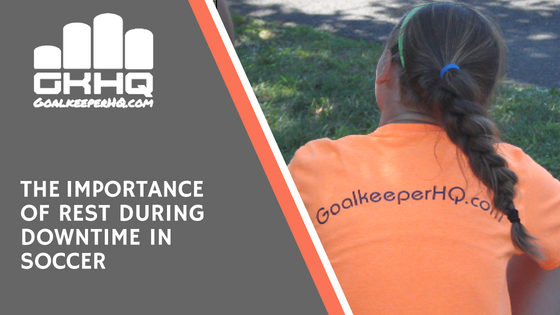1. REST PREVENTS INJURY
It’s common sense that resting is beneficial for injury reduction, but why? Well for starters, rest days prevent overuse. That extends from running to lifting and even walking. If you’re a regular runner, you know how much your legs and feet can take until you just need a day off. If you push it too hard without a break, your muscles and joints suffer from overuse and that’s where injuries can happen.
2. YOUR MUSCLES NEED REST
This is likely the first thing you learned about strength training. When you lift weights, you’re essentially tearing muscle fibers. But without a proper period of rest for your immune system to repair and grow the muscle, you’re not going to get the benefit of your training. That’s why you need to vary the muscle groups you engage on staggered days.
3. YOUR PERFORMANCE WON’T DIP
In general, it takes your body almost two weeks of non-activity before you start losing a noticeable amount of your progress or performance level. So don’t think that taking a day or two off from training will set you back all that hard work you’ve put in.
4. OVER-TRAINING AFFECTS SLEEP
Is your sleep data all over the place? Over-training could be the culprit. Too much exercise can put your body in a constant state of restlessness or on high alert making a good night’s sleep tough to achieve. A telltale sign is an increase in your resting heart rate. Taking those rest day can help bring down your alertness and heart rate, which can help get you a night of sound sleep.
5. YOUR IMMUNE SYSTEM CAN OVERHEAT
During periods of heavy activity, our immune systems are constantly activating to repair muscles and joints. Without proper rest, your immune system can’t catch up to all the repairs your body needs. And then? You guessed it: injuries.
6. MENTAL EDGE
From a psychological standpoint, taking a rest period can rekindle your hunger for exercise and help prevent burnout. Mental fatigue can be every bit as detrimental as physical fatigue and taking a rest day helps to recharge the psyche.
So what can you do to get your mind set on rest? For starters, you’re going to have to make the mental adjustment to understanding and believing that you can take days off. It’s good for you, for all the reasons listed above.
Just like setting your daily steps goals, set your rest goals. Plot out a schedule and pick your weekly rest days; one or two days where you limit your activity to allow your body/muscles to recover. Use your tracker to limit your active minutes. If you’re a huge step-count achiever, give yourself a day where you limit even your walking to a weekly minimum. And don’t forget that active recovery is also hugely beneficial, and a standard routine of stretching or light yoga to improve flexibility and circulation can be especially valuable.
All the above provide benefits of physical rest. This does not mean that you have to stop all development in your goalkeeping. Here is a list of things you can be doing to aid your performance without exerting yourself physically.
- Watch games on TV to pick up trends on what professionals are doing
- Embark on a good stretching routine
- Plan your pre-season
- Read a goalkeeping book such as a biography
- Take a GKHQ Online course to brush up on your goalkeeping knowledge
- Check your equipment and review what is needed before the start of the next season
- Embark on some self-evaluation, by reviewing your match analysis or by using the GKHQ Video analysis service.
- Join the GKHQ membership group to get all the latest videos & education in 12+ different themes, from Technical education to Parent “How To” guides.
- Check off and revise your short term and long term goals
- Research and apply for appropriate camps that will help you achieve your goals.
